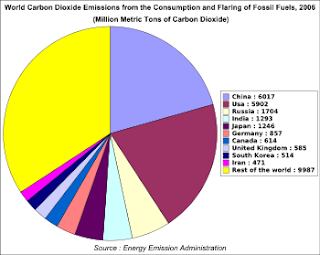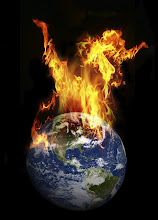
- http://vatlieu.us/about-vietnam.html?view=mediawiki&article=List_of_countries_by_carbon_dioxide_emissions
- http://en.wikipedia.org/wiki/Kyoto_Protocol

Lately there has been a lot if talk in my community about solar power,two of my close friends are going to school at Hudson Valley Community College to learn how to install the panels, and learn more in depth about the solar market. One of my friends always tells me that this is going to be the new market and that it is going to make money, I agree with him to a certain extent but not fully. I believe that solar power could very well be one of the most useful forms of power the only thing that I see posing as a problem is the financial aspect. The reason why people use oil or any other form of fossil fuel as a power source is because it is not hard to obtain and it is inexpensive to use.Eventually both of those statements will be false do to the factor of peak oil that is inevitable in the long run. This is where solar power could do some good the only downside to this is the financial burden that it has. If solar power were made less expensive I believe more people that are environmentally conscious would use this form of energy for their homes and businesses, and if there was some form incentive for corporations to make the switch like tax breaks or government funding I believe they would readily make the switch too. As with most things positive reinforcement is needed to cause a change.

There are a number of websites available that offer people the opportunity to calculate their carbon footprint based on their daily activities and behaviors. One such website is nature.org.
The Carbon footprint calculator calculates your individual or household carbon footprint in tons of CO2 eq/year. The calculator asked me questions about home heating, travelling, appliance use, energy efficient light bulb use, diet and meat consumption, and recycling habits.
My results were quite surprising and lower than I expected. According to the calculator my personal carbon footprint is 7.9 (tons CO2 eq/year). This is compared to the average American's personal carbon footprint, estimated at 27, and the world average, estimated at 5.5. I was also surprised to see how much higher the carbon footprint of the average American is in comparison to the rest of the world. It makes me think that policies need to be made to regulate our carbon emissions. What's the awareness of climate change has not seemed to decrease the CO2 emissions in this country.
The fact that I don't drive a car may have a lot to do with my low carbon footprint. I live in a very large city with an efficient public transportation system. Owning a car is neither necessary nor convenient. I reside in an apartment building which does not allow me to regulate the temperature in my apartment, however, all of my light bulbs are energy efficient as are the majority of my appliances. This may also contribute to my lower footprint.
Another thing nature.org does is breakdown your behavior and offer advice on how to reduce your carbon footprint. I think everyone should visit the website and have their carbon footprint calculated. Is it lower or higher than you expected?
http://www.nature.org/initiatives/climatechange/calculator/
http://www.carbonfootprint.com/carbonfootprint.html

Cline, William. The Economics of Global Warming. Washington, D.C.: Institute for International Economics, 1992.
Humans increase the amount of greenhouse gases released into the environment; however, natural factors also increase the greenhouse effect and are the cause of global warming. Global warming is continues to occur at this very moment, just like the Ice Age happened naturally overtime. But humans can decrease the amount of greenhouse gases being emitted into the environment by correcting some of their actions. If humans are not willing to correct their daily lifestyles, then they should realize how it would affect people in the future. Global warming would greatly endanger animals, humans, plant life, and the United States economy. William Cline declared:
Annual losses from sea-level rise would amount to an estimated $7 billion… Increased electricity requirements for air conditioning would amount to some $11 billion annually… Increased urban pollution with warmer weather would impose an annual cost on the order of $4 billion. An increased incidence of mortality with heat stress would amount to some $6 billion in annual losses. The lumber value of forest loss would be over $3 billion annually. Other tangible costs would arise from increased hurricane and forest fire damage, and there would be additional net infrastructure costs from increased immigration (Cline 5)
All these mortalities and amounts of money are not worth people thinking global warming is not important and not caring on what affect it will have on our children and the future of world.
In order to help save our grandchildren, we have to do our part in the world today to help for the future. As inhabitants of earth, we can walk more and drive less, or drive hybrids so there are less gases being emitted; use light bulbs that have the energy star; reduce, reuse, recycle; use water, heating, and air conditioning efficiently; plant trees and plants; and most importantly spread the news to others. These are just a few of the many solutions we can do to help slow the process of global warming. Our carbon footprints, which are the amount of carbon dioxide we produce, must be observed and decreased. If everyone in the world made a few of these changes, the world would be drastically better already.
Global Warming can be briefly defined as the increase in the average temperature of the Earth’s near-surface air and oceans. However, there are so many ins and outs and causes and effects of Global Warming. Before the topic of Global Warming was brought to the table it was thought, better yet assumed by many people that our world is so big that we could not effect it in the least bit. Although that may have been true thousands of years ago, it does not hold true today. Our technologies and advancements have grown so great, that they, or better yet we, are actually destroying our world. So although we are moving forward in history as so advanced, our world is actually getting worse with each second that goes by.
Our earth’s atmosphere is the most vulnerable aspect of our ecological system. Carl Sagan explains it by saying “If you had a globe covered with a coat of varnish, the thickness of that varnish would be about the same thickness of the earth’s atmosphere compared to the earth itself”. The earth’s atmosphere is supposed to protect us from bad but all we are doing is destroying that protection ourselves. Research shows that the world has now become hotter than at any time during the past 1000 years. Global warming is changing distributions of plants and animals, including animal migration, population sizes and growth rates. It is changing the intensity and frequency of storms, droughts, fires, raising the level of the oceans, and melting glaciers. Unfortunately, all of these consequences are life-altering effects. Scientific research shows that heat-trapping emissions from human activities have caused most of the global warming observed over the past 50 years. The types of human activities that cause these heat emissions are such things as gases produced by vehicles, power plants, industrial processes and deforestation. In addition to those emissions, the intermingling of highways, human developments, plantations, and farms with nature has enormously fallen under the options for nature’s response to the current warming.
In my opinion, the small things can make a difference if everyone participates. Some things we can do to help save our environment are:
Change a light.
Drive less.
Recycle more.
Check your tires.
Use less hot water.
Avoid products with a lot of packaging.
Adjust your thermostat.
Plant a tree.
Turn off electronic devices.
Most importantly: Spread the word worldwide.
